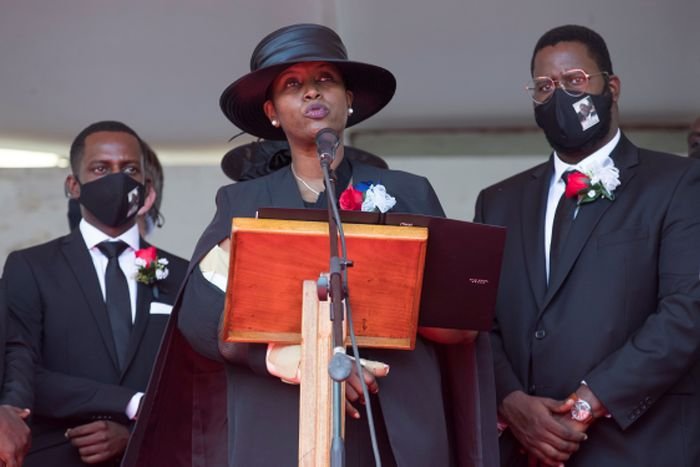Slain President’s Widow and Officials Among Dozens Charge
A judge in Haiti overseeing the investigation into the July 2021 assassination of President Jovenel Moïse has indicted several individuals, including the late president’s widow, Martine Moïse, ex-prime minister Claude Joseph, and former chief of Haiti’s National Police, Léon Charles. The 122-page report, obtained on February 19, raises questions about the involvement of Moïse’s relatives in the attack.
The judge highlighted contradictions in Martine Moïse’s statements, particularly her claim of seeking refuge under the marital bed during the attack. The report noted that authorities found it implausible for even a large rat to fit beneath the bed. Dozens of suspects were indicted, with Claude Joseph and Léon Charles among them. Charles, who is also Haiti’s representative to the Organization of the American States, was not immediately reachable for comment.
Martine Moïse’s attorney did not respond, but Joseph accused current Prime Minister Ariel Henry of undermining the investigation and using it for political motives. Joseph labeled it a “classic coup d’état” and called for Henry’s resignation.
The report disclosed that Martine Moïse allegedly pressured the former secretary general of the National Palace, Lyonel Valbrun, to make the president’s office available to Joseph for organizing a council of ministers. Valbrun claimed that, before the assassination, Martine Moïse spent hours removing items from the National Palace, and after her husband’s death, she urged the opening of the office for Joseph’s use.
The indictments could further destabilize Haiti, grappling with gang violence and post-protest recovery. More than 40 suspects, including 20 former Colombian soldiers, await trial in Haitian prisons. The situation exacerbates the nation’s challenges, with unresolved gang violence, delayed elections, and a struggling economy.
In a separate development, Kenya’s agreement to lead an international force to address Haiti’s security issues faces a setback, as a Kenyan court declared it unconstitutional. The court ruling complicates efforts to deploy U.N.-backed Kenyan police to assist Haiti in combating rising gang violence. High-ranking officials from both nations recently met in the U.S. to draft a memorandum of understanding, attempting to reconcile the deployment with legal concerns in both countries. The memorandum’s impact on the court ruling remains uncertain.
















